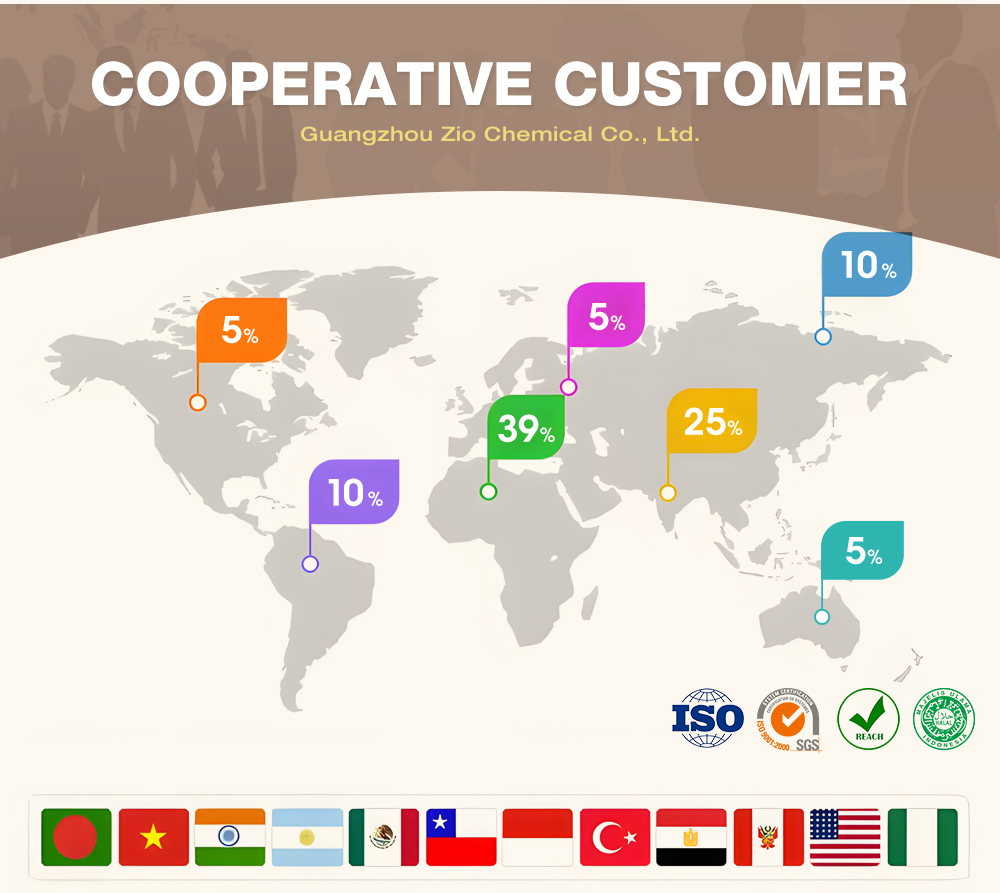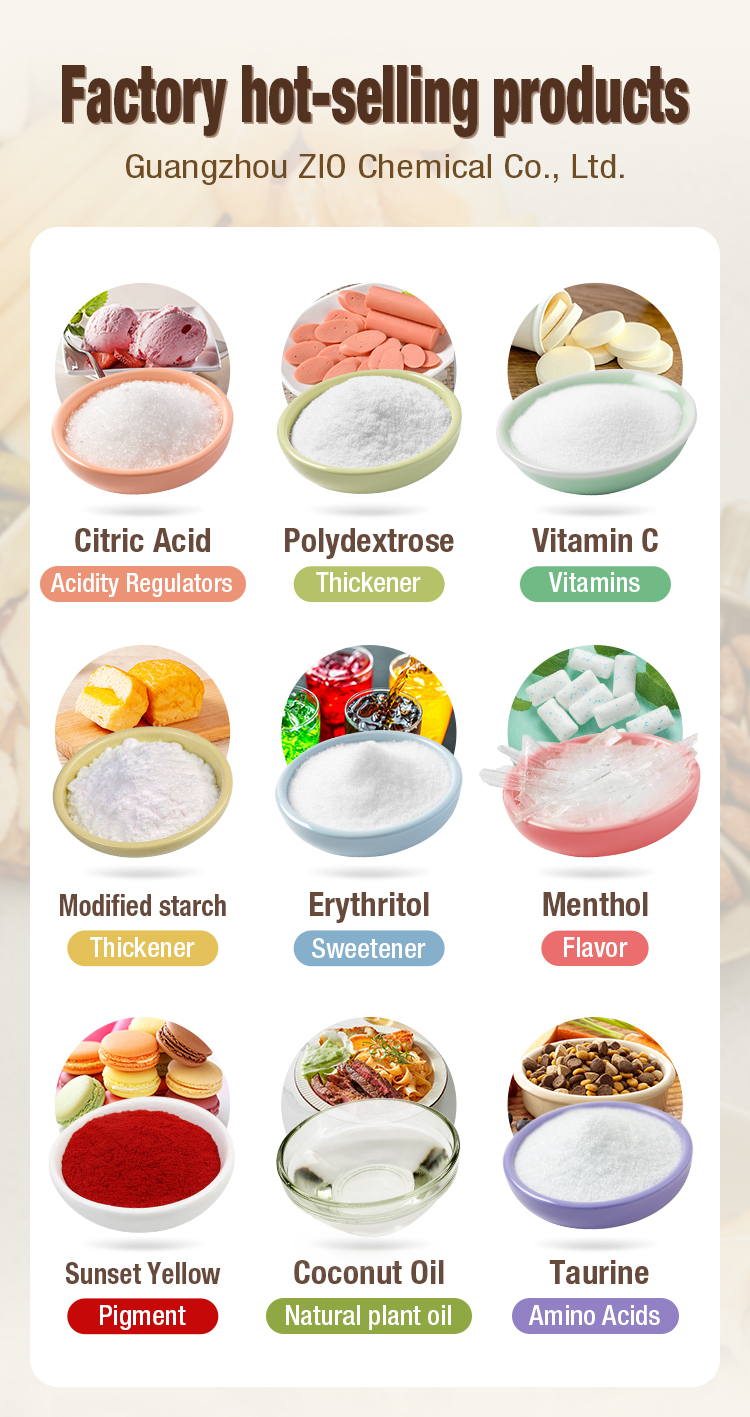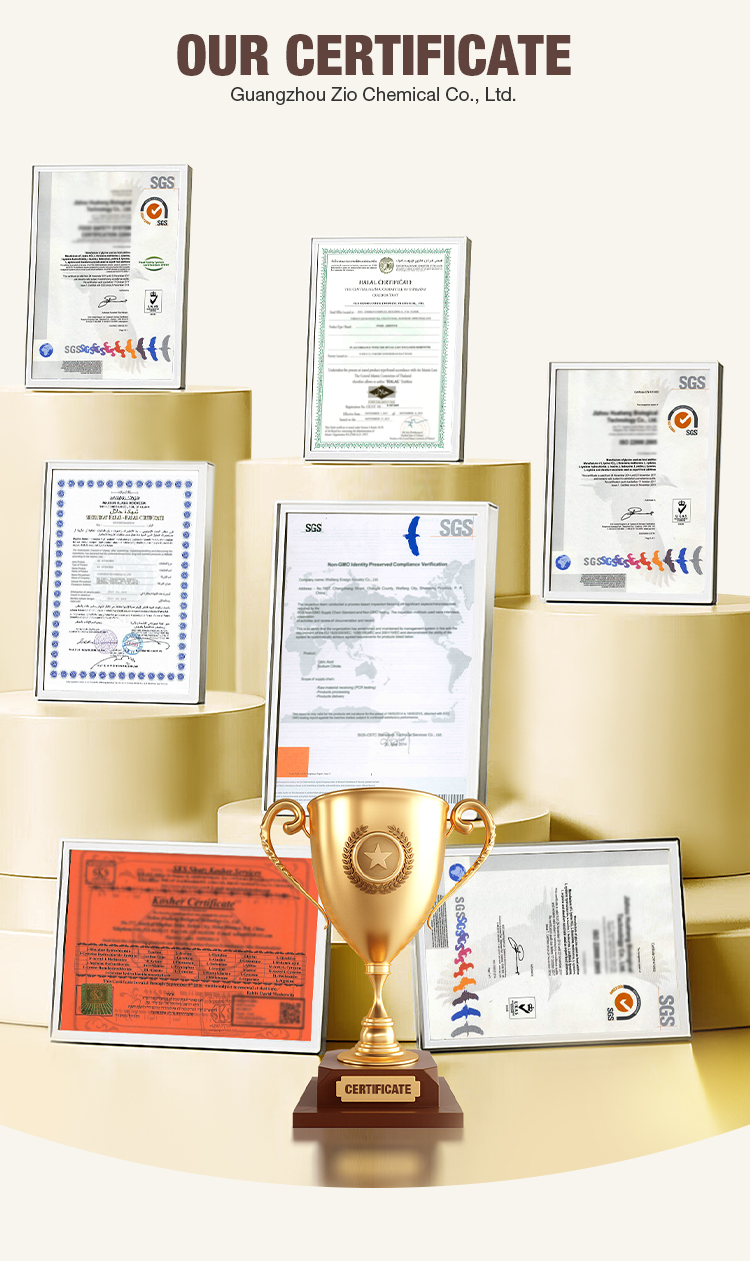Sodium Alginate (CAS No.: 9005-38-3, E Number: E401) is a natural polysaccharide extracted from brown seaweed (e.g., Laminaria japonica).
| Availability: | |
|---|---|
| Quantity: | |











This off-white powder has ≥99.0% purity, moisture content ≤ 15.0%, and viscosity 200–1000 cP (1% solution at 25°C). Compliant with FCC, EU, and GB 1886.243-2016 standards, it forms heat-stable gels with divalent cations (calcium, magnesium) and inhibits microbial growth in processed foods.
Shelf Life Extension: Inhibits yeast and mold growth, extending shelf life of sauces by 15–30 days and baked goods by 7–10 days at 25°C.
Thermostable Gelling: Forms firm gels at 50°C–80°C that withstand retort sterilization (121°C for 30 minutes), ideal for canned seafood.
Moisture Retention: Binds water molecules in meat products, reducing cooking loss by 20%–30% and preventing dryness in sausages.
Natural Label Compliance: 100% plant-derived, supporting "clean label" claims—valued by 73% of global consumers seeking natural additives.
Cost Efficiency: 50% lower cost than pectin with equivalent gelling strength in fruit fillings.
Sauces & Dressings: Added at 0.2%–0.5% in tomato sauce and salad dressings. Prevents oil-water separation and maintains viscosity for 6 months.
Meat Products: Incorporated at 0.3%–0.8% in hamburgers and sausages. Improves juiciness and reduces shrinkage during grilling (≤10% weight loss).
Dairy Desserts: Used at 0.5%–1.0% in puddings and mousses. Creates smooth texture and stabilizes whipped cream toppings for 48 hours.
Fruit Fillings: Mixed at 0.4%–0.6% in pie fillings. Prevents syneresis and maintains shape during baking at 180°C.

Q: How to control gel strength when using sodium alginate?
A: Adjust calcium chloride addition (0.05%–0.2%). Higher calcium levels (≥0.15%) create firm gels for seafood; lower levels (≤0.1%) make soft gels for desserts.
Q: Is it suitable for vegan and gluten-free products?
A: Yes. Certified vegan by Vegan Society and naturally gluten-free (meets < 20ppm gluten standard), ideal for plant-based cheeses and gluten-free baked goods.
Q: Does it affect the flavor of food products?
A: No. At recommended dosages (≤1.0%), it is tasteless and odorless—unlike seaweed-derived additives with briny aftertastes.
This off-white powder has ≥99.0% purity, moisture content ≤ 15.0%, and viscosity 200–1000 cP (1% solution at 25°C). Compliant with FCC, EU, and GB 1886.243-2016 standards, it forms heat-stable gels with divalent cations (calcium, magnesium) and inhibits microbial growth in processed foods.
Shelf Life Extension: Inhibits yeast and mold growth, extending shelf life of sauces by 15–30 days and baked goods by 7–10 days at 25°C.
Thermostable Gelling: Forms firm gels at 50°C–80°C that withstand retort sterilization (121°C for 30 minutes), ideal for canned seafood.
Moisture Retention: Binds water molecules in meat products, reducing cooking loss by 20%–30% and preventing dryness in sausages.
Natural Label Compliance: 100% plant-derived, supporting "clean label" claims—valued by 73% of global consumers seeking natural additives.
Cost Efficiency: 50% lower cost than pectin with equivalent gelling strength in fruit fillings.
Sauces & Dressings: Added at 0.2%–0.5% in tomato sauce and salad dressings. Prevents oil-water separation and maintains viscosity for 6 months.
Meat Products: Incorporated at 0.3%–0.8% in hamburgers and sausages. Improves juiciness and reduces shrinkage during grilling (≤10% weight loss).
Dairy Desserts: Used at 0.5%–1.0% in puddings and mousses. Creates smooth texture and stabilizes whipped cream toppings for 48 hours.
Fruit Fillings: Mixed at 0.4%–0.6% in pie fillings. Prevents syneresis and maintains shape during baking at 180°C.

Q: How to control gel strength when using sodium alginate?
A: Adjust calcium chloride addition (0.05%–0.2%). Higher calcium levels (≥0.15%) create firm gels for seafood; lower levels (≤0.1%) make soft gels for desserts.
Q: Is it suitable for vegan and gluten-free products?
A: Yes. Certified vegan by Vegan Society and naturally gluten-free (meets < 20ppm gluten standard), ideal for plant-based cheeses and gluten-free baked goods.
Q: Does it affect the flavor of food products?
A: No. At recommended dosages (≤1.0%), it is tasteless and odorless—unlike seaweed-derived additives with briny aftertastes.
Natural Source: Derived from seaweed, sodium alginate is safe, non-toxic, and suitable for a wide range of consumers, including those seeking natural ingredients.
Excellent Gelling Properties: Forms stable gels that improve the texture and mouthfeel of food products, making them more appealing to consumers.
Versatility: Can be used in a variety of food types, including both sweet and savory applications, providing flexibility in food formulation.
High Viscosity: Contributes to a thicker consistency in sauces and dressings, enhancing the overall sensory experience.
Stabilizing Effects: Helps maintain the consistency of emulsions and prevents ingredient separation, ensuring a uniform product.
Enhanced Shelf Life: Can improve the stability and shelf life of products, making it a valuable ingredient in food preservation.












Natural Source: Derived from seaweed, sodium alginate is safe, non-toxic, and suitable for a wide range of consumers, including those seeking natural ingredients.
Excellent Gelling Properties: Forms stable gels that improve the texture and mouthfeel of food products, making them more appealing to consumers.
Versatility: Can be used in a variety of food types, including both sweet and savory applications, providing flexibility in food formulation.
High Viscosity: Contributes to a thicker consistency in sauces and dressings, enhancing the overall sensory experience.
Stabilizing Effects: Helps maintain the consistency of emulsions and prevents ingredient separation, ensuring a uniform product.
Enhanced Shelf Life: Can improve the stability and shelf life of products, making it a valuable ingredient in food preservation.











